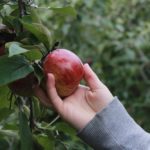London | Reuters — Cargill plans to close its rapeseed crush facility in Hull, eastern England, the global commodities trader said Tuesday. The mill, which Cargill has been operating since […] Read more
1.

Fewer U.K. farmers growing crop

Health Canada said it now has further information to consider in making its decision


Health Canada ruling yet to come on safety for aquatic insects

Locusts in wind tunnels exposed to neonics lost their ability to move themselves where they wanted




